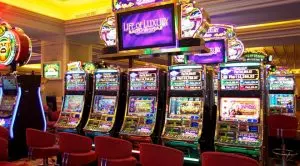 It seems that Namibia’s gambling industry, which has been estimated to millions of dollars, is to be seriously hit by the introduction of new levies.
It seems that Namibia’s gambling industry, which has been estimated to millions of dollars, is to be seriously hit by the introduction of new levies.
After the Casinos and Gambling Houses Act of 1994, and more specifically its section 54 was amended in April 2017, the gambling companies that operate on the territory of the country are obliged to pay a gambling license fee every year, as well as a flat rate tax for each gambling machine they own. Local operators also have to pay a 5% increase on the monthly levy on the companies’ income generated from their gambling machines.
As reported by The Namibian, the country’s gambling houses and casinos had not paid annual license fees since 1996. The only tax they were made to pay was the 5% levy imposed on their gambling machines revenue. The license fees for the machines amounted to N$250 for the first five machines of a gambling operator and N$500 for every machine exceeding the number of five. Gambling companies that operated more than 10 machines were made to pay the amount of N$1,000 per machine.
New Gambling Industry Levies Imposed in Namibia
 Under the new gambling industry levy local gambling operators will be forced to pay a flat rate of N$1,000 per machine regardless of the number of machines they own.
Under the new gambling industry levy local gambling operators will be forced to pay a flat rate of N$1,000 per machine regardless of the number of machines they own.
Servasius Kapinga, the Environment Ministry’s deputy director for gaming control, told The Namibian that for the time being, the country’s authorities have granted a total of 254 gambling house licenses and six casino licenses. Mr. Kapinga also revealed that there have been 2,845 registered gaming machines in the country, while the revenue taxes paid to the Namibian Government over the last fiscal year topped N$23 million. According to the information provided by Mr. Kapinga, more than N$13.3 million of the afore-mentioned amount were generated from casino operations in the country, while local gambling houses accounted for more than N$9.6 million.
The massive amount of revenue taxes accumulated by the Namibian Government has not been unprecedented. The revenue that has been generated through gambling industry fees, levies and penalties over the previous two fiscal years, also exceeded N$20 million, as revealed by Mr. Kapinga for The Namibian.
As mentioned above, the changes implemented in the local Casinos and Gambling Houses Act of 1994, became official in April this year. Such changes have been actually discussed for more than half a decade – since 2011 – so it was high time for them to be implemented. The public consultations over the amended act are expected to be given a start soon, so local gambling operators will be provided with the chance to object against the amendments.
According to the deputy director of the Environment Ministry, the amendments came as a surprise to local gambling operators mostly because of the fact that almost nothing was done in the industry for a period of two decades. He reminded that the country is a member of the Gaming Regulators Africa Forum and since the gambling regulatory authorities of the countries in the region of Southern Africa review the levies imposed on their industries regularly, Namibia also had to make sure that its standards were in line with the ones of its counterparts.
Now, the amended gambling act of Namibia is to ensure stricter regulation of the country’s gambling industry. In addition, the changes made in the Casinos and Gambling Houses Act of 1994 are also expected to make sure that about 14,000 gambling machines that have been operated illegally in the country would be finally registered.
- Author


